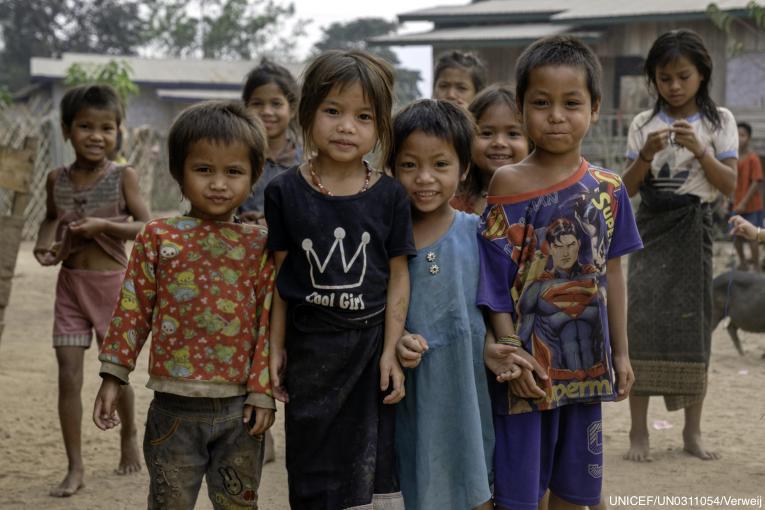- عربي
- 中文
- English
- Français
- Русский
- Español
Keep the well-being of children of East Asia and Pacific at the centre of COVID-19 response and recovery

Joint statement by Najat Maalla M'jid, Special Representative of the Secretary-General on Violence against Children and Karin Hulshof, UNICEF Regional Director East Asia and Pacific
COVID-19 could severely jeopardize gains made in East Asia and Pacific in reducing child poverty and deprivation over the last 30 years and exacerbate existing inequalities and violations of children’s rights.
We support the Joint Statement of the ASEAN Ministerial Meeting on Social Welfare and Development – Mitigating impacts of COVID-19 on vulnerable groups in ASEAN (11 June). It highlights the vulnerability of children, the need to reach them with both social protection and social welfare services and the essential role of social workers.
Children and their caregivers have been affected by the disease directly. Containment measures have severely disrupted children’s everyday lives. High levels of stress and anxiety have impacted the capacity of parents and caregivers to nurture their children.
Children ’s mental health has been affected and they have been more exposed to physical, psychological and sexual violence, as well as neglect in their homes. Spending more time online has increased children’s risk to sexual exploitation and abuse online.
Children with disabilities, children affected by migration, refugee and internally displaced children, children living and working on the street, in detention, and in institutional care have been made even more vulnerable by disruption to essential services.
While much of the region is now emerging from the initial public health emergency, the economic impacts of the crisis will hit children hardest. Growing economic vulnerability will increase the risks of child labour, trafficking, child marriage and sexual exploitation.
Vulnerable families must be supported through expanded social protection schemes. This investment must be matched with adequate investment in social welfare services to address vulnerabilities caused by or exacerbated by the pandemic. Strengthening the social service workforce will be critical to reaching those most in need.
We urge the rapid restoration of social welfare for children and families, including child protection and gender-based violence services, while ensuring the safety of front-line workers.
We call for the protection of the social welfare sector from severe projected reductions in public expenditures, recognizing that the needs for services will increase significantly in the aftermath of the pandemic, especially for the most vulnerable.
Children and young people will face a different reality after the crisis and their future seems uncertain. Children’s views need to be heard and considered in decision-making processes on the pandemic through consultation and dialogue.
We encourage ASEAN member states to bring together all relevant government sectors, especially Social Welfare, Health, Education, and Finance, along with civil society and the private sector, to examine the impact of COVID-19 on children. We all need to learn lessons in preparation for potential future pandemics, start to “build back better” and accelerate action to reach the 2030 Sustainable Development Goals.
The strengthening of services for the wellbeing of children is an investment in the future and will be key to the economic recovery of States from the pandemic and the continuing prosperity of the region.
-Ends-
For further information on this joint statement, please contact:
Shima Islam, UNICEF Regional Office, East Asia and Pacific, ssislam@unicef.org
Miguel Caldeira, Office of the SRSG on Violence against Children, caldeira1@un.org
Media Contacts
Shima Islam
Regional Communication Specialist
UNICEF East Asia and the Pacific
Tel: +66 (0)23569407
Email: ssislam@unicef.org

